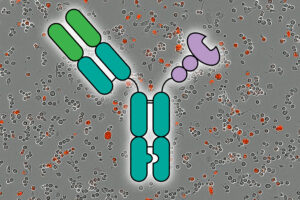
Queensland’s Attorney-General has taken a significant legal step by applying to the High Court to appeal a decision that reduced the sentence for the juvenile responsible for the death of Emma Lovell, a mother from south-east Queensland. The incident, which occurred on Boxing Day night in 2022, involved a then-17-year-old breaking into Lovell’s North Lakes home, resulting in her fatal stabbing during a confrontation with her husband, Lee, on their front lawn.
The juvenile was initially sentenced to 14 years in prison, with a requirement to serve 70 percent of the term in custody. However, the sentence was reduced last month after the Court of Appeal found it to be “manifestly excessive.” The revised ruling allows for his release in 2031, after serving 60 percent of his sentence, with a supervision order extending until 2036.
Legal Grounds for Appeal
Attorney-General Deb Frecklington has instructed an application to the High Court of Australia for special leave to appeal the judgment. She stated, “My application is based on the fact that special circumstances were not able to be established to reduce the sentence.” Frecklington emphasized her commitment to ensuring justice for Emma Lovell, adding, “I have spoken to Lee Lovell and reiterated the Crisafulli government’s commitment to ensuring that the murderer of his beautiful wife Emma will be held to account.”
“This is a tragedy that rocked the state,” Frecklington remarked, underscoring the case’s impact on the community.
Judicial Reasoning and Dissent
In the Court of Appeal’s published reasons, the judges agreed with the original sentencing judge’s assessment that the crime was a “particularly heinous offence,” justifying a juvenile sentence of 10 years or more. However, two judges concluded that the maximum custodial term of 70 percent was inappropriate, leading to the sentence reduction. Notably, one judge dissented, maintaining that the original sentence was not manifestly excessive.
Premier David Crisafulli expressed gratitude to Frecklington for her thorough pursuit of justice for the Lovell family. “This is a tragedy that rocked the state and it impacted a brave Queenslander and his two girls,” he said. When questioned about the appeal’s intent, Crisafulli affirmed the government’s responsibility to explore all legal avenues for the Lovell family. “Whatever prospect that chance is, we owe it to him to get it done,” he stated.
Community and Legal Implications
The case has stirred significant public emotion and debate about juvenile sentencing and justice for victims’ families. Legal experts have weighed in on the complexities of balancing rehabilitation for young offenders with the need for justice and deterrence. This appeal could set a precedent for future cases involving serious juvenile crimes.
Meanwhile, the community continues to rally around the Lovell family, offering support and advocating for stricter sentencing laws. The case has also prompted discussions on improving home security and community safety measures to prevent such tragedies.
Looking Ahead
The High Court’s decision on whether to grant special leave for the appeal will be closely watched, as it could influence legislative and judicial approaches to juvenile crime in Queensland and beyond. The outcome may also impact the broader conversation about justice and rehabilitation in the juvenile justice system.
As the legal proceedings continue, the Lovell family remains at the heart of this tragedy, with the community and government striving to ensure that Emma Lovell’s legacy is honored through justice and reform.






